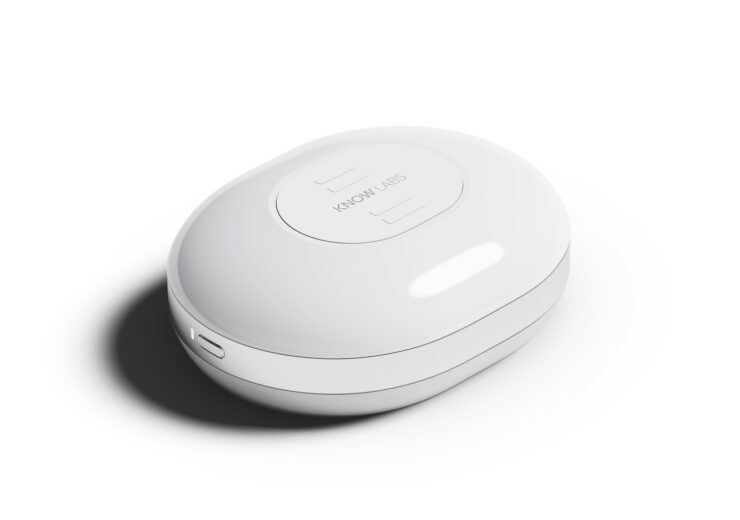The company’s Bio-RFID technology takes shape as a powerful, research-grade device

Know Labs Generation 1 Prototype (Credit: Business Wire)
Know Labs, an emerging developer of non-invasive medical diagnostic technology, revealed the next stage in the development of its proprietary Bio-RFID technology – the Generation (Gen) 1 Device. Gen 1 incorporates Know Labs’ Bio-RFID sensor – which has been proven as technically feasible and stable in delivering repeatable results in measuring blood glucose when used in a lab environment – in a portable device.
Currently, there are no medical-grade, commercially available, non-invasive means of measuring blood glucose. The completion of Gen 1 brings Know Labs closer to achieving its ultimate goal of delivering the world’s first FDA-cleared non-invasive blood glucose monitor for the billions of people living with diabetes and pre-diabetes worldwide.
The Gen 1 prototype is a portable research lab, designed to be a powerful data collection device. Data collection in clinical research is the foundation for further algorithm development and refinement. This device will allow Know Labs to scale data collection tenfold, including testing across more diverse participant populations and scenarios.
“The completion of Gen 1 marks a significant engineering achievement for the company and, more broadly, for innovation in medical diagnostics. Many have tried to non-invasively ascertain glucose and have not succeeded or remain years away from success. Know Labs and our world-class partners overcame incredible engineering complexities over several years and through hundreds of iterations to achieve this level of progress,” said Ron Erickson, CEO and Chairman at Know Labs. “The Bio-RFID sensor is a novel technology that is leading the way to an entirely new branch of science, and Gen 1 takes us closer to our goal of enabling a better way of life for people living with diabetes.”
Over the last five years, Know Labs has developed the Bio-RFID platform technology which consists of a radio frequency (RF) sensor – the hardware – and a method to collect and interpret billions of data points – the software – to identify and measure a wide range of different analytes both inside and outside the body. With Gen 1, Know Labs has made lab testing, and therefore clinical research, fully portable and, as a result, scalable. The modular design enables iterative research and development to allow Know Labs to better learn, test, refine and redesign on an ongoing basis.
The device was built by the Know Labs team in partnership with world-class mechanical, electrical and firmware engineering, and industrial design experts at Igor Institute and Bould Design, and renowned microelectronics and systems engineer, Reza Kassayan, MD, BSEE – all of whom were critical in overcoming the many complexities to bring Gen 1 to life.
“The engineering achievement of Gen 1 is the first of its kind. Our team has successfully taken the sophisticated capabilities of our research lab and miniaturized every critical element to fit into a pocket-sized device, with more on-board computing power than a desktop PC, built-in machine learning capabilities, a long battery life, and it is fully configurable to support our many development initiatives. This system is designed to be the ultimate research and development tool,” said Steve Kent, Chief Product Officer, Know Labs. “As we deploy Gen 1 into this next research phase, our focus is on high-quality data collection, refining our algorithms based on this new data, and understanding all the scenarios in which our glucose monitoring device may be used.”
Further clinical research with the new Gen 1 Device is expected to generate tens of billions of data observations to process, which enables Know Labs to continue refining and optimizing algorithms to manage and interpret these large and novel datasets.
Source: Company Press Release
